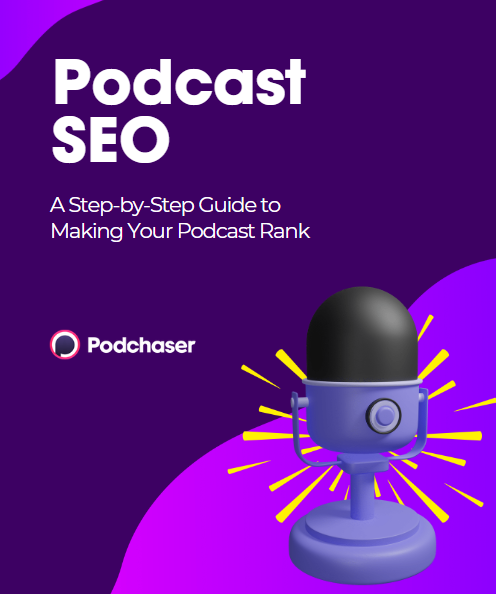A Step-by-Step Guide to Making Your Podcast Rank
Podcast SEO
Boost your podcast's visibility and rankings with our comprehensive guide to Podcast SEO. Learn how to optimize your transcript, website, and content, plus tips on audience targeting, keyword usage, backlinking, and more.

Boosting Your Podcast Visibility & Discoverability
Are you tired of struggling to reach your target audience and increase downloads?
Then it’s time to take your podcast game to the next level with our latest SEO guide.
We surveyed 35 podcast SEO experts and distilled their knowledge into 15 actionable best practices to help you rank higher on search engines, reach a wider audience, and grow your podcast. From optimizing your website and transcript, to targeting your audience, using keywords strategically, and leveraging social media, our step-by-step guide has got you covered.
Remember, SEO is not just about optimizing for search engines, but optimizing for people searching for solutions to their problems. So create timeless, evergreen content that helps solve their problems, and watch as your podcast’s visibility and downloads soar!
What’s Inside: Podcast SEO Best Practices
- Introduction to Podcast SEO
- How Does SEO Work for Podcasts?
- Podcast Transcripts and How They Can Boost SEO
- Podcast SEO Best Practices — Strategies to Make Your Podcast Rank
- SEO Tools to Speed Up the Process
- Content Repurposing & Social Media Ideas
FAQs
What is Podcast SEO?
Podcast SEO helps make your content discoverable to those searching for information, answers, or solutions. Use search engine optimization best practices strategically to avoid ineffective results, such as no conversions or penalties from black hat SEO. The goal is to optimize for people, not just search engines, by providing the answers to the questions they seek. Our Podcast SEO guide will show you how to make your podcast the solution for their search.
How do transcripts help make my podcast SEO-friendly?
Search engines struggle to interpret audio and video content. They can only work with metadata, like descriptions and titles, which is why text is easier for search engines to process. However, with the rise of AI, search engine crawlers can now transcribe and understand podcasts. Enter the Podchaser API, which makes the process seamless. It'll not only generate transcripts, but it can also assist with: Search, Reviews, Charts, Credits, Engagement, Audience Size, Demographics, and Contacts. Transcripts give you an advantage by letting you reach audiences who prefer to read than listen, such as in noisy environments. They also allow you to target a wider international audience by translating your transcripts into other languages. By repurposing and distributing your content, you can reach new audiences and existing listeners on other channels like Twitter, Instagram, LinkedIn, Reddit, Pinterest, and more, expanding your reach and discoverability even further. Additionally, adding keywords to your transcript increases your discoverability through search results. High-quality content also attracts backlinks, which signal to search engines that your content is credible and helpful. Now that we understand the benefits of transcripts for podcast SEO, learn how to maximize their value in our podcast SEO guide.